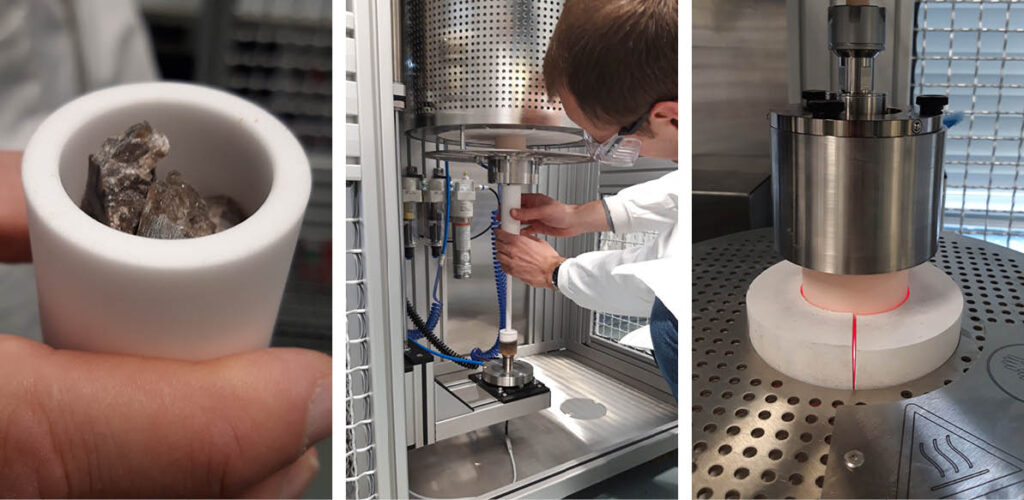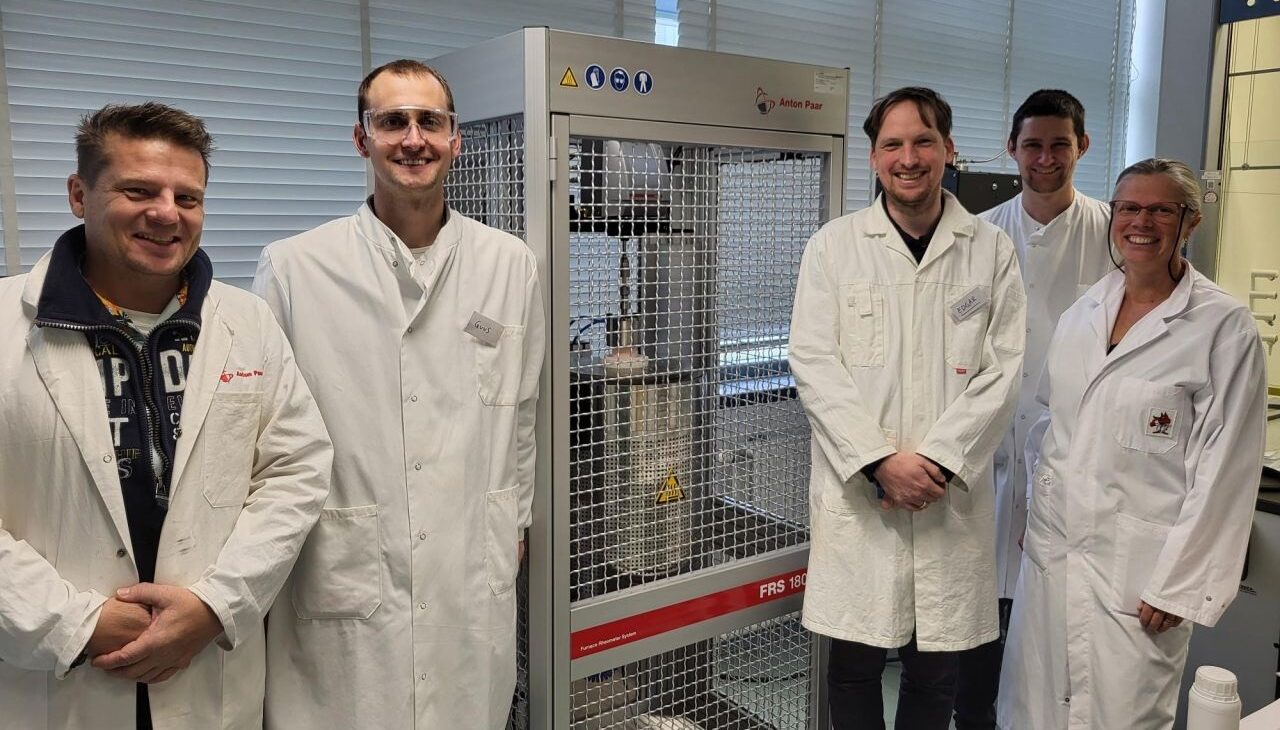A new High Pressure/Temperature Laboratory for Planetary Materials has been commissioned at TU Delft as part of the Delft Planetary Labs of the Faculty of Aerospace Engineering. A state-of-the-art Anton Paar FRS 1800 gas-tight rheometer was installed, the fifth facility of its kind world-wide, and is now ready for use by dr. Edgar Steenstra and co-workers.
With this novel apparatus, researchers will be able to study in-situ the rheological properties (e.g. viscosity) of almost any geologically relevant melt or melt/solid system up to 1750 degrees Celsius. The melting chamber has a gas-tight function, which allows for using an inert atmosphere (Ar, N2) or various other atmospheres of choice (CO2, CO, SO2 mixtures). This helps prevent oxidation of the melts at high-temperature, a common problem in geological investigations of lavas in the lab. Applications in the near future will be focused on understanding various enigmatic volcanic processes on planetary surfaces, magma transport dynamics and lava flows.
Beyond planetary science, the facility will also be used to study slag–metal interactions in steelmaking, supporting innovations in material processing and quality.
The acquisition of the rheometer was realised with funding from NWO (Dutch Research Council) through an M-Invest Open Competition grant, and the European Research Council (ERC) provided funding of the overall infrastructure through ERC Starting Grant VenusVolAtmos.

Source: LinkedIn

